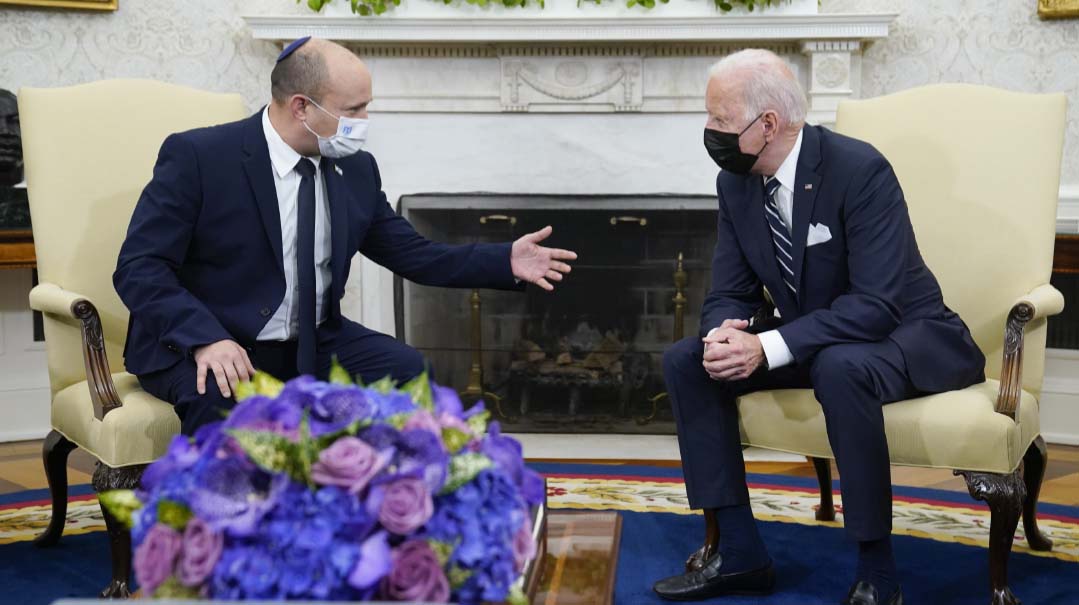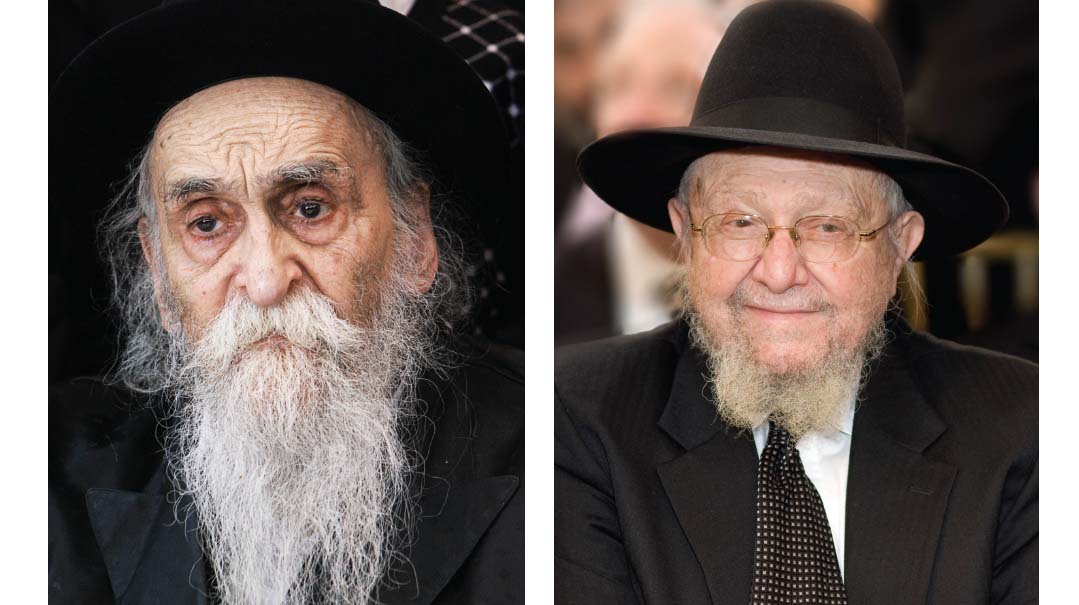Unlikely Pawns
| August 31, 2021This image of change is only a surface reflection. In reality, nothing has changed

To me, nothing captures the dramatic changes of 5781 better than a snapshot of the recent meeting between Israeli Prime Minister Naftali Bennett and US President Joe Biden.
Many of us were getting quite comfortable with what we considered our “friends in office,” both in Eretz Yisrael and in the US. Under President Trump, Israel’s sovereignty over the Golan was recognized. The American embassy was moved to Jerusalem. In the United States, Jews were valued at the highest levels of office. We were well-connected in the highest echelons of government. The White House wouldn’t even play ball with Iran, who had to halt their nuclear activities. The president’s own daughter was a practicing Jew. We thought, as the Gemara says in Megillah 15b, “achos lanu b’veis hamelech,” we had an advocate situated in the halls of power.
Then, as if on a dime, it all changed. Defund the police, anti-establishment sentiment prevails. Somehow, in the eleventh hour, a less friendly face ekes out just enough votes to win the presidency. Israel goes to a fifth election. New deals are brokered, and all the familiar faces are cast out. Anti-Semitism has reared its ugly head in this country in ways we haven’t seen in decades. Our security has vanished in the blink of an eye.
Or so it seems.
This image of change is only a surface reflection. In reality, nothing has changed. We were always completely dependent on Hashem; we always will be completely dependent on Hashem. What we saw as positive world events was nothing more than HaKadosh Baruch Hu pulling the strings of world leaders, manipulating the powers that be to protect the welfare of His beloved children.
The Almighty does not need the assistance of “our people in office” to protect the security and interests of the Jewish people. In fact, sometimes the Ribbono Shel Olam prefers to use the unexpected pawn — the power, president, or minister who is considered an adversary — as the very instrument who brings salvation to the Jewish people.
We see a powerful case in point from the Purim story. When Achashveirosh celebrates the destruction of the Beis Hamikdash, Hashem doesn’t say, “I have to get someone else into office to pave the way for the rebuilding of the Temple.” Instead he says, “You’re celebrating destruction? Ha! You’re my man! Your party celebrating the Churban will be the very conduit to rebuilding the Temple.”
Indeed, Vashti is eliminated, Esther is selected, and she has a child with Achashveirosh who finances the rebuilding of the Beis Hamikdash with funds from taxes levied by the very king who celebrated its destruction.
This Rosh Hashanah we will beseech Hashem, “Meloch al kol haolam kulo b’chvodecha… Rule over the entire world in your honor…” Ribbono shel Olam, please reveal yourself and show your Hashgachah to Klal Yisrael who so desperately need to see Your divine control and intervention in the events unfolding before our eyes.
So when I look at the image of these new world leaders, I try to remember that Hashem doesn’t need “our man in office” to protect the Jewish people. Give Hashem more credit than that. Sometimes, He prefers to use the “Achashveirosh” to accomplish the very same thing.
Rabbi Daniel Glatstein is a rav, public speaker, author, prolific researcher, pulpit rabbi and teacher with a global following.
(Originally featured in Mishpacha, Issue 876)
Oops! We could not locate your form.






